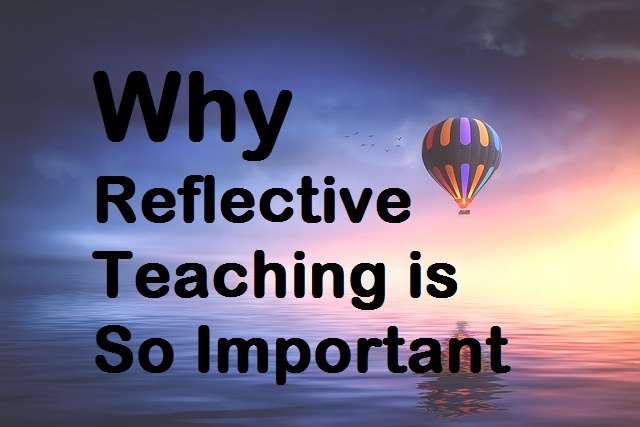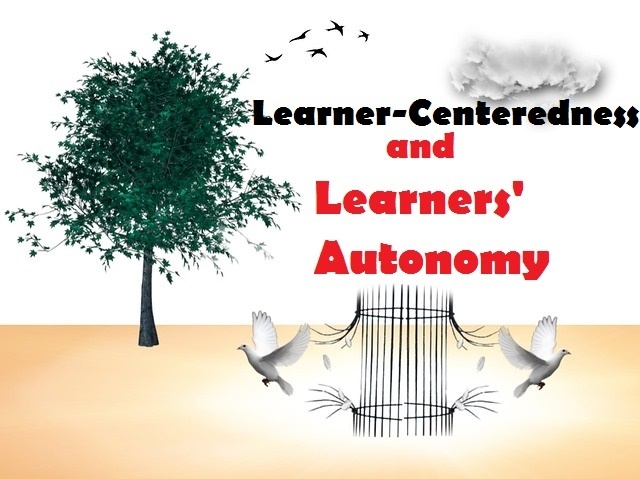Reflective teaching
How can reflective teaching enhance our classroom practices and affect students’ learning positively?
John Dewey says: ‘’ we don’t learn from experience, we learn from reflecting on experience’’. This shows how important it is to reflect and think about our past experiences for the sake of more learning. Experience is very important, but reflecting on it is more valuable.
Recent research on teacher education suggests that reflective teaching is a key to successful instructional performance (Brookfield, S. D., 1995 & Danielson L. M., 2009).
Everyone knows that teachers spend a lot of time planning lessons, preparing materials, searching for new tools, and delivering learning inputs. Although teachers do all these things, they miss an important practice: reflective teaching.
When teachers reflect, they look back at what happened earlier in their classroom, they re-examine those responses and behaviors that their students displayed. They assess how students received the input.
What is reflective teaching?
Reflective teaching is a pedagogical process through which teachers look at what was done in their classrooms, thinking about why they did something in a particular way, and thinking about other possibilities that may have worked. It is a way to self-observe and self-evaluate classroom teaching practices.
Reflective teaching requires collecting, analyzing, and evaluating data. It is a systematic approach to resolve classroom problems and make future improvements.
How to reflect?
One of the ways teachers use to reflect is they usually write down observations about their classes, and what they saw about students’ feelings and their level of engagement. They record the things that went right and the things that went wrong. To do this, they ask these questions:
- has the lesson worked?
- Have I made any mistakes?
- What went wrong?
- What should I have done?
- How can I improve next time?
For reflective teaching to be effective, it must be timely, deliberate, and consistent. It should take place right after the class. Teachers should maintain this habit as much as they can.
Why is reflective teaching important?
Reflective teaching helps teachers improve the quality of their teaching practices.
Effective teachers are resilient to change. They know that they have to make adjustments and improvements with regard to their teaching to help more students engage and learn.
Oftentimes, reflective teachers ask why some of my students seem to be uninterested in what I was saying. Answering this question will reveal what was wrong and how to solve this problem in future events.
Reflective teaching helps teachers be effective classroom managers.
Some teachers often find that the things which trigger misbehavior in the class are either that the lesson is boring or students don’t get the point.
Reflection helps teachers think about what they did, why it was unclear or boring, and how it could be improved in the future. This repeated process of reflection help teachers foster classroom management skills and assure a positive learning environment.
Reflective teaching promotes collaboration among colleagues.
Reflective teaching can be either a private or collective process that involves workmates. Many teachers resort to peer-observation. They observe each other and discuss things that seem important. This helps them share the beliefs underlying their work, share experience, and build more knowledge of sound teaching practices.
Reflective teaching is a way to maintain personal and professional development.
We all realize that teacher professional development rarely takes place in some places. Actually, reflective teaching underlies some of the principles of professional development: consistent and continuous learning. It takes time and effort, but it is definitely so powerful.
Reflective teaching helps teachers gain feedback about themselves and their work.
Teachers can’t just wait until an inspector or an outsider steps into their class in order to observe them. They can self-monitor their work by keeping track of what they do inside and outside the class. This helps shift responsibility from outsiders to teachers themselves. Feedback is something that should be given on a continuous basis and reflective teaching can allow this.
Reflective teaching helps teachers understand the institutional and cultural context of their teaching.
Many teachers have experienced real struggles with some students in certain milieus. That happened because the teachers were unaware of students’ sociocultural backgrounds. An important part of reflective teaching is understanding students and their socio-cultural features. Teachers can always collect evidence about their students through surveys or observations, analyze the data, and see how that affects their teaching and in what way.
I hope you really enjoyed reading this post. What else can you say about reflective teaching? Please, share your ideas in the comments to help others know more.
References for extensive readings
- Brookfield, S. D. (1995). Becoming a Critically Reflective Teacher. San Francisco: Jossey-Bass
- Danielson L. M. (2009) Fostering Reflection. In Educational Leadership (66)5.
- Dewey, J. (1933). How We Think. Boston, D. C. Heath & Co.
- The Getting of Wisdom: What Critically Reflective Teaching is and Why It’s Important.
Chapter available at:
https://static1.squarespace.com/static/51acea8be4b02783f894c272/t/53628f3be4b0bddd58665b7
6/1398968123150/Brookfield-Getting+Wisdom.pdf








I totally agree with the idea of reflecting on what we do to hone our teaching.I tried this with the teachers I was in charge of and suggested to them to extend reflecting to their learners themselves to sensitize the latter to the fact that they are also responsible of their learning.In the meantime,it was a teachable opprtunity for students to improve their writing skills since they had real reason/puepose to write.
Yes, definitely dear abdelillah. This thing called reflection is of paramount importance.
It is desirable that teaching be based on reflection. However, many teachers seldom do it because it adds to their workload. Note that reflection requires time and teachers’ commitment.
It is desirable that teaching be based on reflection. However, many teachers seldom do it because it adds to their workload. Note that reflection requires time and teachers’ commitment.
Yes, it takes time and effort. There already is enough teacher workload.
It is very crucial that teachers reflect on “What did exactly work?”. However, we need to supplement it with a no less important question: “Why did it work?”. It is not enough to focus on the things that went awry. Indeed, even the things that went well could enlighten us and draw our attention to the underpinnings underlying effective learning practices.
Thank you dear abdessamad. I agree with you